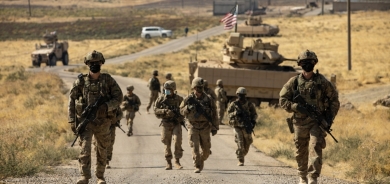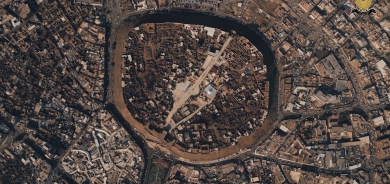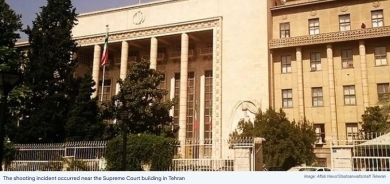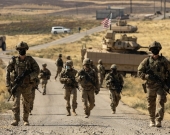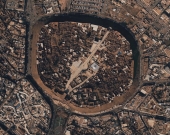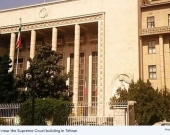‘Earmarked’ Politicians Can Be Influential for Kurdistan's Minority Groups
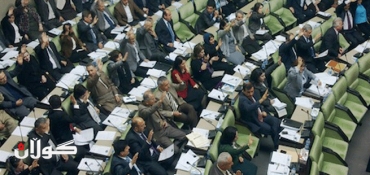
ERBIL, Kurdistan Region - Networking, creating good relations and convincing others to support you: That was the main trademark of two politicians on earmarked seats in the Kurdistan Parliament. Eleven seats are reserved for politicians of the Christian and Turkmen minorities in Iraqi Kurdistan.
Salim Kako, who was an MP for the Assyrian Democratic Movement (ADM), and Sherdl Tahsin, who is an independent politician with the Turkmen Brotherhood Club, both recently left after one term in parliament. As parliament members without major parties behind them, they found they made a natural coalition. Although they could not present drafts of law themselves, they convinced members from other parties to sign on to their proposals.
Christians have six earmarked seats in the Parliament in the Kurdistan capital, Erbil. Many Christians in the diaspora think these politicians are censored heavily, have to agree to what the main Kurdish parties want and cannot have any real influence.
Kako, 58, denies that. “I speak out as I want in the Parliament,” he says proudly.
Kako, who calls himself “one of the 25 most active members,” quotes major achievements, because he decided to be a critical supporter of the Kurds. “If I am an enemy to the Kurds, then what can I achieve here?”
Making coalitions on issues helps to get what you want, they both think.
“The Kurdistan Parliament has a major problem, that prevents coalitions between some parties,” says Tahsin, 56. “The fact is that the parties rule. The bigger factions cannot do anything without the endorsement of the party leadership.”
Thanks to their open attitude, Kako and Tahsin were invited whenever a special commission was formed to look into sensitive issues. “They were happy that we made the balance.”
Their image helped them to get proposals past the Parliament. For instance, one of Kako’s major achievements: Adding Assyrians and Chaldeans to a revised law about honoring “martyrs,” as the Kurdish call victims. The 2007 law mentioned only victims of Anfal, Saddam Hussein’s operation against the Kurds that cost about 180,000 lives.
Kako set out to make the law more general – for all victims of violence.
“When in 1933 over 600 Christians were killed in Semel, that also was genocide. They must be equal to the Kurdish victims.”
Tahsin made sure that the Turkmen that were killed by Saddam were added. As a result, their surviving family members will get pensions and benefits.
Tahsin, a former sportsman, mentions three major victories during his term: The Parliament added two Turkmen guards to the ceremonial ones outside its hall, two Turkmen were appointed as advisors to the speaker and the Turkmen were given three offices in the parliament building.
Together, they worked hard to prevent the removal of the quota for Christians and Turkmen in the provincial and municipality councils.
“Without quota it is very difficult to have influence, because our numbers are too small,” Tahsin explains.
When they could not arrange enough support, plans failed. Tahsin could not secure a national holiday for the Turkmen, nor did he get his requested seat for Turkmen from Sulaimani. He failed to get “something Turkmen” added to the Kurdish flag and anthem.
These are minor issues compared to Kako’s failure in 2011 to get a new civil law through parliament – even though he had the signatures of members of the main parties to back him. The issue was too sensitive, he feels. It involved people who change their religion.
When Christians convert to Islam, their spouse and children automatically become Muslims too. Kako wanted children to stay in their original faith until they are 18, and then decide.
“Although they officially can change back at 18, in reality that is not possible, as Islam does not allow people to leave the faith.”
By far the most important part of his work in the Parliament was the contact with “thousands of’ people,” Kako says.
At their request, he helped to simplify the residency procedure in the Kurdistan Regional Government (KRG) for Christians fleeing Baghdad and Mosul. He helped to find them jobs, and to get their salaries transferred to the KRG. He was involved in providing guards for the churches in KRG after the attack on -- and kidnapping in -- a church in Baghdad in 2010.
Tahsin also considers the jobs he secured for members of his minority group -- in the government or the Parliament, as well as pensions for others -- as part of his main accomplishments.
Both remained strongly attached to their communities. That is how Kako discovered that, in a schoolbook on Islam, Christians were described as dirt and the chapter taught that killing them was allowed.
Shocked and furious, he presented the speaker of the Parliament with a copy of the book. The issue was taken to the minister of education.
“He did not even know!” Kako exclaims. “Next day the ministry ordered to immediately collect and destroy all the books. I am happy that the thing was controlled, because the teachers hadn’t reached the chapter yet.”
RUDAW


